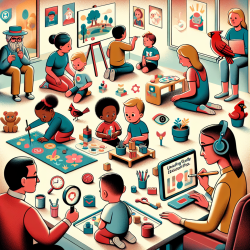Introduction
The COVID-19 pandemic has significantly impacted various sectors, including community-based brain injury associations across Canada. These associations play a critical role in supporting individuals living with brain injuries, their families, and caregivers. A recent study titled Impact of the COVID-19 pandemic on community-based brain injury associations across Canada: a cross-sectional survey study highlights the challenges faced by these associations and their adaptive strategies during the pandemic. This blog explores how practitioners can leverage these insights to improve their services and advocate for better support for brain injury associations.
Understanding the Challenges
The study conducted a cross-sectional survey involving 45 key representatives from brain injury associations across Canada. It identified several challenges faced by individuals with brain injuries during the pandemic, including:
- Social isolation (98%)
- Loneliness (96%)
- Anxiety (93%)
- Technological barriers (91%)
- Understanding public health guidelines (67%)
These challenges were exacerbated by the pandemic, highlighting the need for tailored support and resources for this vulnerable population.
Adaptive Strategies and Innovations
Despite the challenges, brain injury associations demonstrated resilience and adaptability by implementing various strategies to support their clients. Key adaptations included:
- Providing wellness checks and psychosocial support to alleviate social isolation and anxiety.
- Offering technology training and assistance to overcome digital barriers.
- Distributing devices and facilitating access to affordable internet services.
- Creating simplified and accessible public health information to help clients understand and follow guidelines.
These strategies not only addressed immediate needs but also laid the groundwork for more resilient and inclusive service delivery models.
Opportunities for Practitioners
Practitioners can learn from these adaptive strategies to enhance their services and advocacy efforts. Here are some actionable steps:
- Enhance Digital Literacy: Provide ongoing technology training and support to clients, ensuring they can access online services and resources.
- Strengthen Community Partnerships: Collaborate with local organizations to pool resources and expertise, enhancing service delivery and sustainability.
- Advocate for Inclusive Policies: Work with policymakers to develop disability-inclusive public health guidelines and funding models that support community-based associations.
- Promote Mental Health Support: Integrate mental health services into existing programs to address the psychosocial challenges faced by clients.
Conclusion
The COVID-19 pandemic has underscored the vital role of community-based brain injury associations in supporting individuals with brain injuries. By understanding the challenges and adaptive strategies highlighted in the study, practitioners can improve their services and advocate for systemic changes that enhance the sustainability and impact of these associations. For more detailed insights, practitioners are encouraged to read the original research paper: Impact of the COVID-19 pandemic on community-based brain injury associations across Canada: a cross-sectional survey study.










